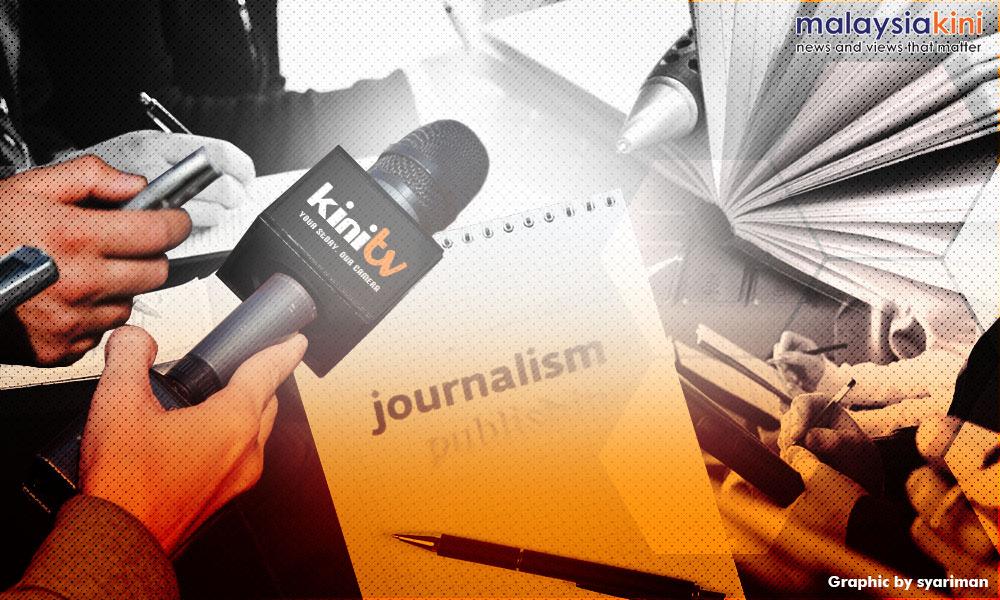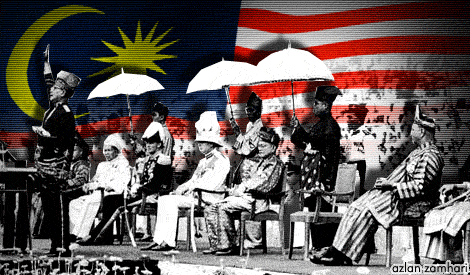
In the run-up to the 2008 general election, the GE12, the daily chatter in the newsroom of my newspaper was invariably about voting for the incumbent ruling coalition or the opposition.
Out of curiosity, I asked one young reporter, who was usually the most animated, about the forthcoming polls: “Have you registered as a voter?” To my utter shock she had not. It’s almost like a practising vegan offering me a new recipe for cooking tandoori chicken.
“Then you are not qualified to write about elections,” I told her. End of argument. Her jaws dropped and she said no more. Maybe because I said the right thing. I don’t know. But she remains my good friend till today.
There are some who see the role of journalism as supporting the status quo and the establishment. To do anything else would be a sin. After all, their rice bowls depend on it. On the flipside, there are yet others who would do the exact opposite. That again would also be a sin. That would be too self-righteous and equally biased.
The job of journos is not to tell readers how to vote or who to support but to give them sufficient information to make decisions themselves on an informed basis. That’s basic empowerment taught in Journalism 101 – a free flow of information in the market place of ideas and choices.
People who choose to live in darkness can never show others where the light of a new day may just come from. We cannot force readers to follow our own sense of enlightenment. Illumination comes from exercise of one’s own conscience. Therefore, journalists cannot afford to leave their souls outside the doors of their newsroom.
Now eight years later. Call this déjà vu: a feeling that one has already experienced yet something that is actually happening for the first time. This time around, I am hearing from the young a different attitude; one of fatal indifference and hopelessness: “What’s the point, the same old crooks will end up winning the elections!”
That’s precisely the point! We get the government we didn’t vote for. Repent for our redemption is at hand.
 Let’s go back to our core narrative. On Aug 31, 1957, Tunku Abdul Rahman Putra began reading the then Federation of Malaya’s declaration of independence with this preamble: “God's blessing shall be forever a sovereign democratic and independent State founded upon the principles of liberty and justice and ever seeking the welfare and happiness of its people and the maintenance of a just peace among all nations.”
Let’s go back to our core narrative. On Aug 31, 1957, Tunku Abdul Rahman Putra began reading the then Federation of Malaya’s declaration of independence with this preamble: “God's blessing shall be forever a sovereign democratic and independent State founded upon the principles of liberty and justice and ever seeking the welfare and happiness of its people and the maintenance of a just peace among all nations.”
Six years later, together with the Borneo states of Sabah and Sarawak, (and for a while Singapore), a new enlarged entity of Malaysia was ushered in. The foundational basis for nationhood as proclaimed by the Tunku remains largely unchanged as a template for good governance.
Today, on the eve of our 14th general election, the question we ask ourselves is: “Have we achieved liberty and justice, truth and righteousness, integrity and good governance?”
The answer is no. The truth is the country has gone so far of its anchor that a new and restless voice in the wilderness is crying for drastic change. This is not a Quixotic rabble rousing but one made collectively by a former prime minister, labelled as a PM with Indian descent by the current PM, and two other former deputy prime ministers, together with key opposition leaders. This may be the iota of hope for the nation, bizarre as it may sound. Like they say, life is stranger than fiction. But let’s give them space.
The question is this: Are journalists hearing a new voice on the horizon? If so, are they giving enough columns, in their media to begin a conversation for readers? The truth is that the voice for change is invariably relegated to two column inches, one on page 18 of the local news section.
Why am I writing this piece? I am retired from active journalism and I only write occasionally. Just last Sunday I met a friend after church and he asked about GE14 and for my prognosis. I gave it enthusiastically.
“So why are you not writing about it?” he asked. What’s the point of journalism when journalists themselves have largely lost the plot. My reply to him is plain déjà vu.
“If you who can write does not write, who then will?” His rebuke stabbed me in the heart like a five-foot spike. “Oh, no!”
The issues journalists should address
So what are the issues that journalists, especially editors and publishers, should attempt to address in the run-up to GE14?
There are many. But for me, I want to get back to our original template as declared by the Tunku. “God's blessing shall be forever a sovereign democratic and independent State founded upon the principles of liberty and justice and ever seeking the welfare and happiness of its people and the maintenance of a just peace among all nations.”
How can we seek God’s blessings when all we do is to heap billions and billions from our national coffers on Jakim and the like. And all they are preoccupied with is in issuing fatwa after fatwa, not about justice and truth and righteousness but on the mundane like how to avoid handling dogs and celebrating Valentine’s Day and who can use the word Allah for God. Macam macam ada, bah. What about some pontificating on corruption and conspicuous overseas shopping jaunts and buying big diamonds from money stolen from you and me?
The purpose of my piece is not to be a dissertation on how bad has our bad governance become since GE12 and GE13. My moot point is that journalists must engage with readers in ways that give hope in an intelligent manner to discern the issues we need to address as we go to GE14.
Let’s take just one national issue that has become so international in scope and disgrace: 1MDB. Our mainstream media is so hopeless that we need to rely on foreign coverage for clues.
Let me end on an optimistic note. We have not reached rock-bottom yet, even though we are close to scrapping the barrel. We are near the tipping point that would change everything for better or for worse.
The tipping point, as suggested by Malcom Gladwell in his best seller of the same title, is that moment when social behaviour crosses a threshold, tips and spreads like wildfire. This may not be containable, as in the case of the uprising previously in Egypt, Libya and Syria. The ruling coalition, together with the renegade opposition party, PAS, is going into GE14 shamelessly playing the twin cards of race and religion.
Our redemption is for journalists to alert us to the tipping point. This is what I call redemptive journalism - steering us away from the treacherous rocks of our self-destruction as a nation. Our redemption is predicated on righteousness as Selangor Speaker Hannah Yeoh often exhorts: “Righteousness exalts a nation.”
So help us God.
BOB TEOH is a former secretary-general of the Confederation of Asean Journalists and also previously a pastor.- Mkini



No comments:
Post a Comment
Note: Only a member of this blog may post a comment.